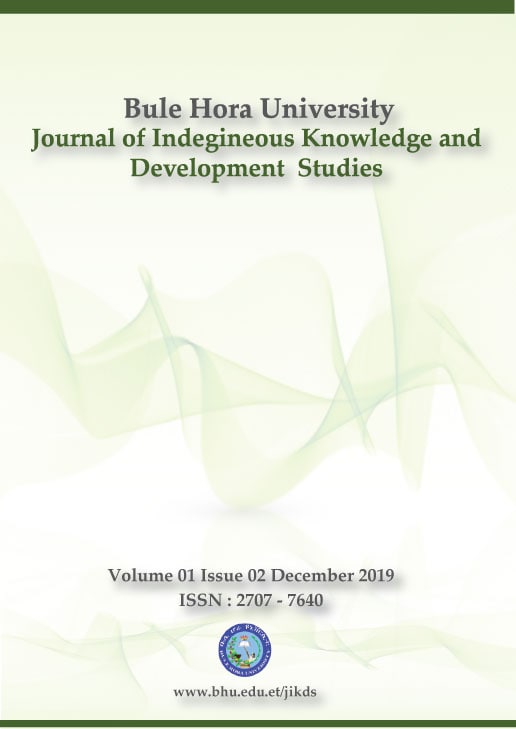Some of the Ritual Practices in Oromo People: Guji Oromo in Focus
Keywords:
Guji Oromo, malxachuu, ritual, waxaaAbstract
The aim of this paper is to investigate the indigenous knowledge system practiced in the form of rituals by Oromo people at the time of difficulties and social crises with particular reference to Guji Oromo. The Oromo practice their own religion, which is a belief in a monotheistic, one-supreme deity, known as Waaq. In this study, what, where and why they practice indigenous practice was discussed and analyzed. The study employed qualitative research approach with exploratory research design because of the nature of the identified research problem that people experience in the environment, belief system and practices to be studied. Interview, focused group discussion method and purposive sampling techniques were employed. This research employed symbolic interpretation, feminist theory and cultural ecology for analysis of the paper. Data gathered through Interview and Focus Group discussion were carefully interpreted, analyzed and crosschecked against the reviewed documents to draw analytical findings and conclusions in the lens of the research objectives and research questions. Under Gadaa system, Guji Oromoo practices different rituals and ceremonies with symbolic meanings for different purposes. Most of the rituals have been performed to solve some kinds of problems facing both on human beings and on animals. The paper argued that for terminating harsh ecological disruption such as drought, disease, fertility and other social crises, they have been using indigenous knowledge. Based on this findings, the paper concluded that Guji Oromoo have been using indigenous knowledge for fertility problem, repeated death and accident.
Downloads
Published
Issue
Section
License
Copyright (c) 2019 Bule Hora University

This work is licensed under a Creative Commons Attribution-NonCommercial 4.0 International License.

